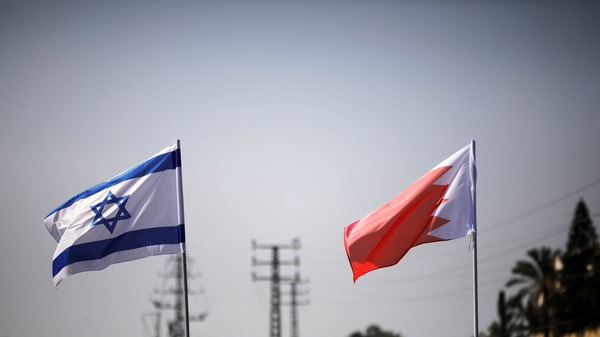Seyed Reza Sadr al-Husseini, in an interview with the website of the Strategic Council on Foreign Relations, referring to the appointment and stationing of the ambassador of Bahrain in the occupied Palestine by the Al-Khalifa regime, said: The Bahraini regime has established secret relations with the Zionist regime for many years due to its illegitimacy and lack of public support for the regime in that country, and continues to insist on its mistake, believing that it can increase its position among the world’s powerful countries.
He assessed connections of the active economic and security lobbies in Bahrain with the Zionist regime as necessary for the decision to reveal the relations and said: Bahrain does not have a significant position in terms of population and geopolitics, as well as regional influence. The country is recognized in international institutions as the largest regional prison; because it has kept a significant part of its people in custody and is trying to force the noble people of this region to remain silent by trying to revoke the citizenship of a large part of its population.
The expert on West Asia affairs continued: The Al-Khalifa regime is transferring people from different countries in the region and abroad, especially Pakistan, African countries and Southeast Asia, to fill its country with population, and because of this helplessness is making utmost efforts to overtake in establishing relations with the Zionist regime. In fact, regimes that do not have the legitimacy of a popular base themselves, try in various ways to legitimize another illegitimate regime.
Intensification of public protests
Sadr al-Husseini referred to the numerous protests in Bahrain by various public groups against the revelation of relations with Israel and appointment of an ambassador to that regime and said: The hatred of the Islamic Ummah for the Arab states that betrayed the Palestinian people is on the rise every day and in this regard, we have been witness to the escalation of internal protests in Bahrain. In the past few days, we witnessed how the widespread and nightly demonstrations of the people during the month of Muharram were accompanied by the suppression of the Al-Khalifa regime, and a group of women and even teenagers were arrested in that country.
Saying that the Bahraini people do not consider the ambassador dispatched to the occupied territories as their representative and do not recognize him, adding: Bahraini protesters insist they will remain loyal to Palestine and the people of that country and its sanctuaries, and oppose normalization of relations with the Zionists.
The West Asia analyst described the introduction of Bahrain’s first ambassador to Tel Aviv and the opening of the Zionist regime’s embassy in Abu Dhabi after the 12-day Gaza war in which at least 256 Palestinians, including 67 innocent children, were martyred as a betrayal of the Palestinian people and added: The usurpers are continuing their attacks on the Palestinian people, the siege, the settlements and the desecration of Islamic sanctities. Bahrain regime, with such measures, with explicit support for those crimes, is considered its accomplice.
In continuation; Sadr al-Husseini referred to the decision of the Bahraini National Airlines to start direct flights to Tel Aviv on November 30, and said: During the last year when relations between Bahrain and the Zionist regime were revealed; the only projects that were unveiled were cultural projects such as; the trip of the Zionist regime’s music groups and youth to Bahrain, and it seems that the targeting of that regime is focused on the culture of the Bahraini people.
According to the expert on West Asia affairs: It seems unlikely that the Zionist regime would pursue a substantial economic project in Bahrain, and the most important reason for opening the embassies was to break the 70-year-old taboo of ties with the Zionist regime in the Islamic world. Neither Bahrain has the ground to carry out key development projects, nor does the Zionist regime have the funds to present to Bahrain.
Security dimensions of presence of the Zionist regime in Bahrain
Emphasizing that establishment of relations with the Zionist regime and opening the embassy will not have a positive outcome for the Bahraini people, he added: The Zionist regimes presence in the region has full security dimensions, and since this fake regime pursues certain targets in the region, it is not possible to enter into non-security projects; even if it looks like a very economical project. The Zionist regime is the enemy of the nations of the region.
Saying that the Zionist regime’s attempt to enter the Persian Gulf could not harm Iran’s security, and while warning the leaders of the regional countries to be aware of the regime’s overt and covert measures in the region, Sadr al-Husseini said: Presence of the Zionist regime is in line with the destruction of the relations among countries of the region, create divisions and Iranophobia in different ways. This regime will not take any positive and constructive action for the benefit of the nations of the region.










0 Comments